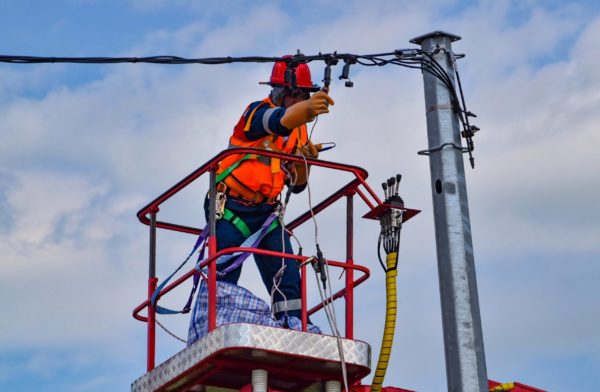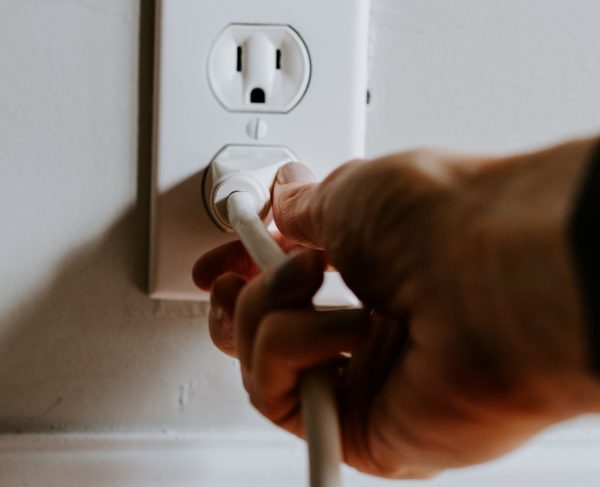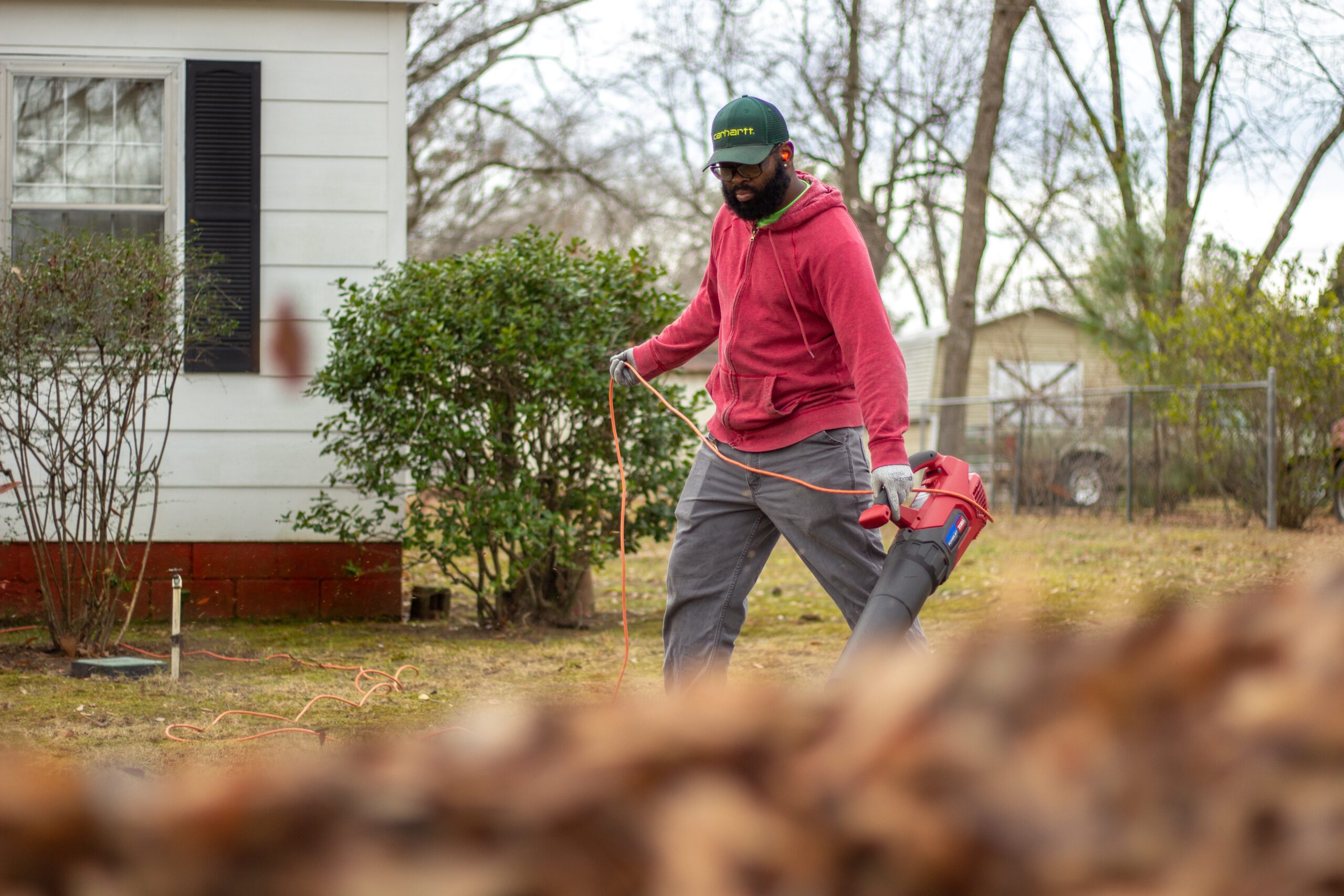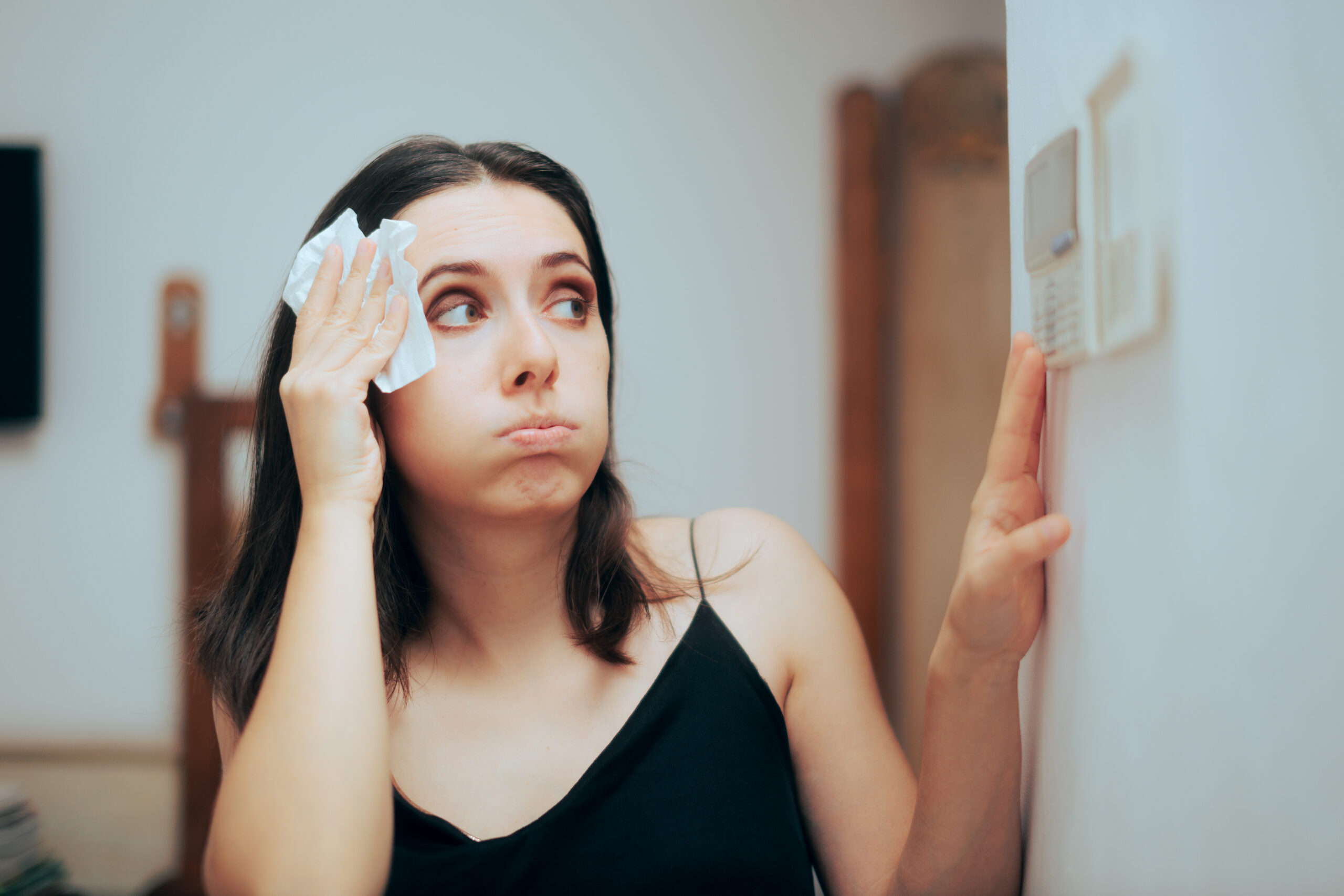Summer blackouts aren’t a new thing, but with people spending more time in their home because of the pandemic and working remotely, and temperatures and storms increasing thanks to global warming, they are happening more often.
If you’re wondering what to do in a power outage, you should start by preparing beforehand so you’ll be ready and not freaking out when the time comes. Feeling confident in your plan can be half the battle. Here are some blackout tips so that you can keep calm during a stressful event that can last anywhere from minutes to days.
1. Create a plan for keeping cool
It’s important to know how to stay cool without electricity, especially if you live in a hotter state. You don’t want to get heatstroke or any other heat-related illness. If you lose power, keep windows and doors closed so hot air can’t get in as easily. Keep out the heat of the sun by closing all curtains or blinds around the house. Have some handheld fans, manual or battery-powered, ready to go. You can stay cool longer by taking a cold shower and air drying yourself. Make sure you’re drinking plenty of fluids, and keep bottled water and even electrolyte drinks in case whatever causes the blackout also affects the tap water.
2. Have a social safety net
Having contact with your neighbors and nearby family and friends will help in multiple ways. You can find out from your neighbors if your house is the only one that has lost power or if the blackout extends farther. If you need to leave your home, it definitely helps to have people you’re close to who you can stay with for as long as needed. Keep a physical copy of their phone numbers in case your phone/computer loses access to the internet or runs out of power.

3. Own reliable backup power
If you have electricity you can connect to that’s off the grid, you’ll have one of the best possible preparations for a power outage. Either a backup generator or solar battery storage will work.
Generators are more common, and most will automatically start when your home loses power. You can also choose from smaller units that are easily portable to larger ones that can provide electricity to a whole house. However, you’ll need to be careful when setting them up, because gas-powered generators can cause carbon monoxide poisoning. They need to be at least 20 feet away from any A/C units, vents, or windows.
Solar batteries, on the other hand, are safer and better for the environment since they don’t burn fossil fuels. Plus, they come in handy more often than a generator, keeping your home powered when it’s dark, cloudy, or in an actual emergency. They come in different levels too, and your solar installation company can help you find the best one for your energy lifestyle needs.
Thinking about going solar so you can have the best reliable backup power? Fill out the form below for recommendations near you.
4. Prepare your emergency disaster kit
When creating your emergency kit, you’ll ideally have enough power outage supplies to last at least three days. Water and non-perishable food items like dried and canned food are an easy place to start. It’s also a good idea to keep a cooler and ice packs ready for perishable food and medication. Flashlights are better than candles, as they’re less of a fire risk – just make sure to have plenty of spare batteries. Then of course, a first-aid kit with a manual, gauze, tape, bandages, list of emergency phone numbers, thermometer, prescription meds, and hand sanitizer are good for any situation. Disposable items like paper towels, cups, plates, and plastic utensils are a bonus in case something happens to the water system.

5. Practice food and water safety
You’ll want to have food that doesn’t need a fridge and plenty of drinking water in case the power is out more than a few hours. If you do have refrigerated or frozen items that you want to save, it helps if the fridge/freezer is mostly full rather than half empty or completely empty so that it can continue to stay cool. Keeping the refrigerator’s doors closed as much as possible will also lengthen the time that the insulated inside stays cold. Most food will still be safe to consume if the power is out for less than four hours. If the blackout lasts longer, it’s best to eat the fresher, perishable foods first. In any case, you don’t want to get food poisoning during an emergency, so when in doubt, throw it out.
When stocking up on drinking water, you should have enough for one gallon per day, per person. If you can, you should store enough for two weeks, but three days is an acceptable minimum – plus some for any pets if you have them. Depending on the range of the blackout, water purification systems can malfunction, and you shouldn’t use water that could be contaminated.
6. Unplug appliances to prevent overload
Phones should always be charged since you don’t know when they might become your only way to contact someone. Then, during a power outage, televisions, computers, refrigerators, and washers/dryers should be unplugged. This is so that when the power comes back on, your appliances and electronics won’t overload your system. You can also get surge suppressors to protect your home from a system overload. If you have backup power like a generator or solar battery, you can save energy by only keeping the essentials plugged in, like your air conditioning and fridge.
While it’s also good to turn off all your light switches, you can leave one on so that you’ll know when the power is back.

Make sure to check up on things like your disaster kit and social safety net at least once a year so you can be confident that everything is up-to-date, and all your planning isn’t in vain. If you’re in a position to do so, installing a solar system would be the best course of action to keep things running smoothly in the event of a blackout. You don’t have to worry about how to stay cool without electricity, because you’ll be covered, especially if you have battery storage. Either way, so long as you’ve used these blackout tips to plan, you will keep yourself and your family comfortable and safe during a power outage in the summer heat. A little preparation will go a long way in saving you time, money, and stress.
Are you thinking it’s time to switch to solar?




